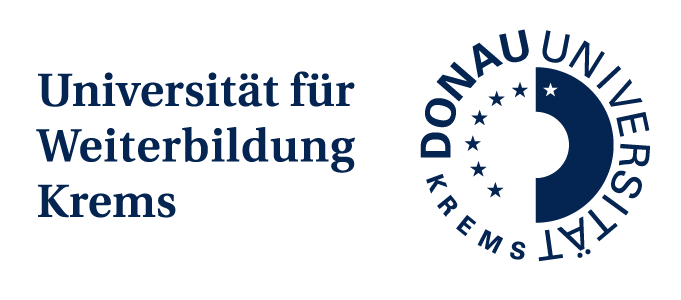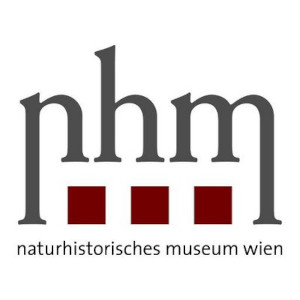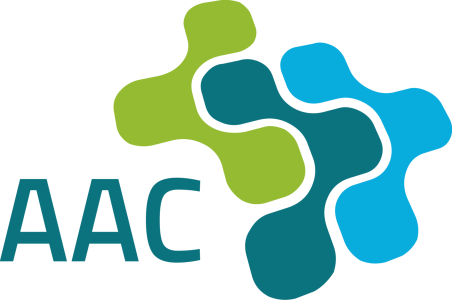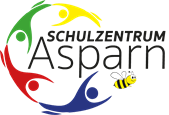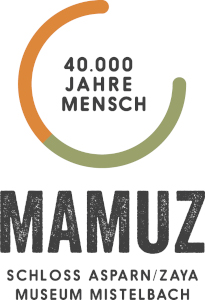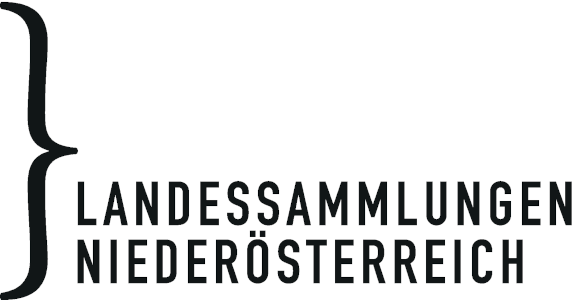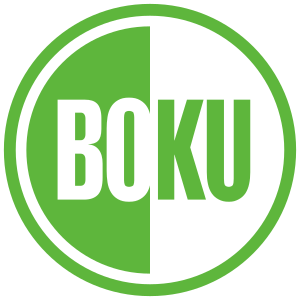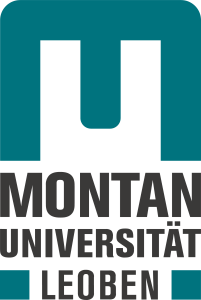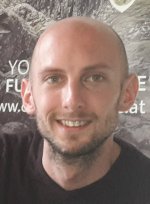
Florian Heigl
Phänoflex
Flexibilisation of WF-mowing dates according to the phenological model
The ÖPUL-measure Nature Conservation results in farmers usually having an agreement on a fixed mowing date. Due to the ongoing climate change, vegetation development fluctuates more and more especially during spring and early summer. Therefore, it was proposed to expand the flexibility of harvest date requirements. For this purpose, over a hundred farmers all over Austria started to observe the course of panicle development and the blooming of black elderberry. Based on this data, a phenological model is calculated for each region. During a warm year with an early onset of vegetation development, the farms can mow their meadows before the date given by the project confirmation. The new, earlier date is then communicated via www.mahdzeitpunkt.at.
Roles and responsibilities
Project lead
Austrian council for agricultural engineering and rural development
Project partners
GeoSphere Austria (former Central Institute for Meteorology and Geodynamics)
Modeling of the annual vegetation development with the additional inclusion of weather data from GeoSphere Austria. Analysis and handling of meteorological data and phenology data from GeoSphere in cooperation with experts.
LACON landscape planning consulting
Modeling of the annual vegetation development with the additional inclusion of weather data from GeoSphere Austria as well as annual organization and supervision of the observations by the Citizen Scientists.
Citizen Scientists
Monitoring and documentation of the phenology of cock's-foot and elder
This project fulfils version 1.1 of the quality criteria for citizen science projects on Österreich forscht.
Hero
DESIGNING AN INFORMATION TOOL FOR CARDIAC REHABILITATION
Background
Previous research has shown that after an acute cardiac event, such as a heart attack, patients can feel uninformed about the follow-up care and cardiac rehabilitation. Digital technologies have the potential to make health-related information available at any time and in a layman-friendly manner.
The aim of the project was to develop a digital prototype that provides patients with information regarding cardiac rehabilitation following an acute cardiac event.
The HERO-Project
The HERO co-design workshop series was carried out in collaboration between four scientists from the Ludwig Boltzmann Institute for Digital Health and Prevention (LBI DHP) and a total of 16 research partners (ten cardiac patients, six healthcare professionals and one professional with a cardiac patient history).
The workshops were based on the principles of generative co-design. In addition to presentations and group work, which enabled an exchange of experiences, the following methods were used to answer the questions: A brainstorming session in an acute hospital setting to prioritise information and to discuss where to possibly place information in the hospital. Afterwards, paper prototypes were designed to identify latent needs and to define requirements for a digital information support tool. Figure 1 shows impressions from the workshops.
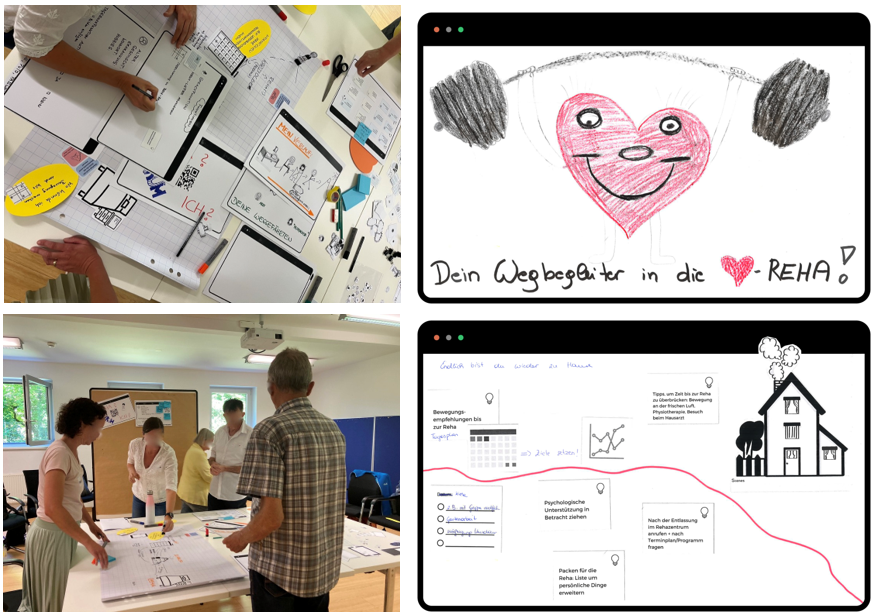
Figure 1. Impressions from the co-design group work.
Based on the results of the co-design workshops, a digital prototype was developed that addresses the expressed needs and contains the defined requirements. The next step will be to develop an app, which will then be tested by cardiac patients in the acute hospital setting.
Get involved!
We are always looking for people who are interested in testing our app! Currently we are looking for:
- Cardiac patients who participated in a cardiac rehabilitation programme
- Healthcare professionals from the cardiology sector (nursing staff, therapists, doctors...)
Please feel free to get in touch with us!
Additional information and contact
Isabel Höppchen, MSc
PhD student Human-Computer Interaction
Ludwig Boltzmann Institute for Digital Health and Prevention
Lindhofstr. 22, 5020 Salzburg
Contact: This email address is being protected from spambots. You need JavaScript enabled to view it.
Click here for the project website.
This project fulfils version 1.1 of the quality criteria for citizen science projects on Österreich forscht.
Aquirufa
Biodiversity and ecology of freshwater bacteria
The bacterial genus Aquirufa, which was discovered and scientifically described in cooperation with pupils, is the eponym and focus of the research project. The aim is to research the ecology, biodiversity and distribution of Aquirufa in water bodies through the active and creative participation of citizen scientists in the entire research process.
Many people only know bacteria as pathogens, although only a small proportion of bacteria belong to this group. Environmental bacteria drive material cycles and are involved in primary production; without their metabolic activities, the ecosphere as we know it would not exist. They are also absolutely essential organisms for our ecosystems, such as water bodies. Despite this importance, there is still a great need for research. According to estimates, there are probably several million species of bacteria, but only a little over 20,000 of them have been named and described. This enormous wealth of species is therefore still largely undiscovered. The project therefore aims to draw attention to this world hidden from the naked eye and to awaken understanding for scientific work, especially basic research.
School classes and other citizen scientist groups will collect water samples from self-selected or specified water bodies and process them microbiologically under supervision. Smaller groups will also work in the laboratory and help with sampling campaigns. With the involvement of the citizen scientists, newly discovered Aquirufa species will also be scientifically named and described during the course of the project.
Interested citizens can participate in the project in workshops in Mondsee and in the Weitwörther Au (near Salzburg). More information is available on the project homepage. You can also follow the project on Instagram.
Citizen Science Seminar
In 2023, poject coordinator Alexandra Pitt held a lecture about the project Aquirufa (in German) as part of the lecture series "Citizen Science Seminar" at the University of Natural Resources and Life Sciences Vienna (BOKU).
Video
Videos (in German)

This project fulfils version 1.1 of the quality criteria for citizen science projects on Österreich forscht.
Recycling Heroes
The sale of electrical and electronic equipment is constantly increasing and accordingly e-waste has already become the fastest growing waste stream in the world. Our society needs to face this challenge without delay, so the Recycling Heroes project aims to raise awareness about e-waste, especially among students but also in society in general, by combining the principles of the circular economy with citizen science methods.
Participation
As citizen scientists, the students develop a comprehensive questionnaire to ask their family or neighbours what electronic products are used for and over what period of time, and what happens to devices that are no longer used. Afterwards, the students analyse the results of the survey and consider what could be done to ensure proper disposal and increase the recycling rate. In addition, the students look into the development of electronic products that can be used in other current citizen science projects. These new products can be developed, for example, as a mesh-up of e-waste parts and new parts - sustainability is the focus here! Subsequently, the developed and tested prototypes will be duplicated in small numbers and distributed to other partner schools in the project. These schools will use the prototypes to collect data on temperature, noise, humidity and particulate matter in the school environment, for example, and then make them available to Citizen Science projects.
Aims
The project aims to strengthen the students' environmental awareness and recycling culture, as well as their understanding of eco-design and development processes. In addition, the students learn to develop suitable survey instruments and to sharpen their scientific thinking with regard to citizen science.
This project fulfils version 1.1 of the quality criteria for citizen science projects on Österreich forscht.
United by Crisis?
Participate in archaeological field surveys and/or in cleaning, documenting & interpreting archaeological finds.
A transdisciplinary look at the early Neolithic communities in the Schletz settlement cluster
The project aims to explore the surroundings of the famous Neolithic settlement of Asparn/Schletz (Lower Austria). Numerous human remains suggest a violent attack on this site in the Late Linear Pottery Culture, approx. 7.000 years ago.
Due to its size and earthworks, we assume that Schletz was the central site of a cluster of smaller settlements in surrounding region. By researching these settlements, we hope, among other things, to increase our knowledge on the background of the massacre and on the origin of the people who died in Schletz.
We cordially invite you to work with us as a Citizen Scientist!
In the project, we are searching for Neolithic finds (pottery, stone tools, etc.) at known or suspected sites near Asparn/Schletz together with interested people and collectors. During our surveys, we go over the fields at regular intervals and map the findings that we discover. Later on, we clean them together und create a scientific documentation and evaluation. Here you can find further information on how you can participate as a Citizen Scientist. However, as we have planned a format of intensive cooperation, we have reached the maximum number of Citizen Scientists that can participate in the project. Nevertheless, we can still offer you to join the waiting list for the participation in the project (or possible follow-up projects).
In another part of the project, local middle school students extract and process soil samples from the area of the LPC sites to create an isoscape (= isotope landscape). Through a comparison with Sr isotope ratios of the human remains, this will allow a discussion of whether the people that died in the massacre might have grown up locally or not.
Citizen Science Seminar
In January 2025, Johanna Irrgeher, Julia Längauer and Jakob Maurer gave a lecture on 'The Neolithic "Massacre of Asparn/Schletz" - transdisciplinary research with citizen scientists' at the Citizen Science Seminar of BOKU University (in German).
Project partners & cooperation partners
Picture gallery:
-
 Zwentendorf, possible early Neolithic site near to the Zaya-river Zwentendorf, possible early Neolithic site near to the Zaya-river
Zwentendorf, possible early Neolithic site near to the Zaya-river Zwentendorf, possible early Neolithic site near to the Zaya-river -
 Victims of a Neolithic massacre were discovered during archaeological excavations in Asparn/Schletz Victims of a Neolithic massacre were discovered during archaeological excavations in Asparn/Schletz
Victims of a Neolithic massacre were discovered during archaeological excavations in Asparn/Schletz Victims of a Neolithic massacre were discovered during archaeological excavations in Asparn/Schletz -
 Together with Citizen Scientists we do systematic “line walking” for the identification of Neolithic sites Together with Citizen Scientists we do systematic “line walking” for the identification of Neolithic sites
Together with Citizen Scientists we do systematic “line walking” for the identification of Neolithic sites Together with Citizen Scientists we do systematic “line walking” for the identification of Neolithic sites -
 The finds are carefully packed; the find spots are precisely documented with GPS The finds are carefully packed; the find spots are precisely documented with GPS
The finds are carefully packed; the find spots are precisely documented with GPS The finds are carefully packed; the find spots are precisely documented with GPS -
 Newly discovered, unwashed finds „fresh from the field” Newly discovered, unwashed finds „fresh from the field”
Newly discovered, unwashed finds „fresh from the field” Newly discovered, unwashed finds „fresh from the field” -
 Early Neolithic stone tools and potsherds from the Zwentendorf-Hofwiese site Early Neolithic stone tools and potsherds from the Zwentendorf-Hofwiese site
Early Neolithic stone tools and potsherds from the Zwentendorf-Hofwiese site Early Neolithic stone tools and potsherds from the Zwentendorf-Hofwiese site -
 Early Neolithic house (house model in MAMUZ Schloss Asparn/Zaya) Early Neolithic house (house model in MAMUZ Schloss Asparn/Zaya)
Early Neolithic house (house model in MAMUZ Schloss Asparn/Zaya) Early Neolithic house (house model in MAMUZ Schloss Asparn/Zaya) -
 Soil samples are taken by middle school students for the creation of an isotope map Soil samples are taken by middle school students for the creation of an isotope map
Soil samples are taken by middle school students for the creation of an isotope map Soil samples are taken by middle school students for the creation of an isotope map -
 To research the origin of the dead of Schletz, chemical analysis is done on soil samples and human teeth To research the origin of the dead of Schletz, chemical analysis is done on soil samples and human teeth
To research the origin of the dead of Schletz, chemical analysis is done on soil samples and human teeth To research the origin of the dead of Schletz, chemical analysis is done on soil samples and human teeth -
 The core team of the project with scientists from different disciplines is looking forward to working together! The core team of the project with scientists from different disciplines is looking forward to working together!
The core team of the project with scientists from different disciplines is looking forward to working together! The core team of the project with scientists from different disciplines is looking forward to working together!
https://www.citizen-science.at/en/network/working-groups/wg-quality-criteria/author/934-florianheigl?start=60#sigProId0cf662b906
The project is funded by:
This project fulfils version 1.1 of the quality criteria for citizen science projects on Österreich forscht.
Everyday Morality
What is this project about?
How can good people do bad things? How can people act contrary to their moral beliefs without having a bad conscience? White lies, rule bending, finding excuses for our own behaviour, which we would judge others for … To be honest, we have all done stuff like that. Nobody is always 100 % moral - misconduct spans from little untruths to refined fraud, from omission of some facts to crimes. All these things have one thing in common: When performing these actions, the same mechanisms are at work that allow us to ignore our moral compass. At least that is what theories assume. In this project, we examine when, how often, in which contexts and by whom these different mechanisms are applied.
Why is this important?
Our goal is to check to what extend theory corresponds with reality. How is unmoral behaviour in everyday life justified? What influence do situational differences and relationships between actors have? Which actions are seen as immoral?
How can Citizen Scientists participate?
Your task is to observe your surroundings after a short online information. Who acts immoral? When? What justifications are provided for this behaviour? Not just encounters in everyday life matter, but also media, newspaper reports, narratives, movies, social media etc. can be analysed. For this, short questionnaires will be sent to you during the course of one week.
At a later point in time, Citizen Scientists are invited to analyse the submitted scenarios, to build categories and thereby check to what extent theory and reality correspond. Another aim is to discover new categories and strategies.
Podcast episode
If you would like to learn more, you can listen to the Wissen macht Leute podcast episode about the project (in German).
This project fulfilled version 1.1 of the quality criteria for citizen science projects on Österreich forscht.
New Podcast Episode: What's flying here?
There is finally a new episode of our podcast Wissen macht Leute (Knowledge Makes People) - this time we present the project "Butterflies of Austria".
Video of the talk Citizen Science in Asia
You can now watch the video of Scott Edmunds' talk on Citizen Science in Asia on our YouTube channel.
Plastic Pirates
Plastic Pirates - Go Europe! A Citizen Science Initiative to investigate plastic pollution along rivers
The pollution of beaches and riverbanks in Europe with plastic waste does not stop at borders. Preventing micro- and macroplastics in the environment, addressing this challenge scientifically and researching sustainable materials are therefore tasks we need to work on together across Europe.
Plastic Pirates - Go Europe! was first developed in Germany in 2016. Since January 2022, with the support of the EU Commission, the initiative has been extended to the whole of Europe as a European citizen science action in which school classes and youth groups (young people aged 10-16) collect plastic samples from streams and rivers and document their findings. The data collected across Europe is entered into a database and then analysed by scientists. Young people who are interested in science and the environment are given the opportunity to participate in practical research. They make an important contribution to researching the state of European rivers and the extent and pollution caused by plastic waste.
As part of the project, the types of waste identified by the individual groups (e.g. cigarette butts, pieces of foil or packaging) are recorded on a suitable river bank or stream with the help of detailed action materials and subsequently published on a digital map. The data collected by the young people will help science to gradually close existing research gaps on the occurrence, composition and production of plastic waste.
Interested school classes and youth groups are cordially invited to participate in the initiative. All information about the "Plastic Pirates" can be found on our homepage (www.plastic-pirates.eu/at) or can be obtained by sending an email request to This email address is being protected from spambots. You need JavaScript enabled to view it..
Podcast episode
In November 2024, team members Gudrun Obersteiner, Anna Noichl and Anna-Sophia Schlagmann gave insights into the project on the Österreich forscht podcast Wissen macht Leute - you can listen to the episode here (in German).
Photo Gallery
-
 Citizen Scientists on their way to the collection Citizen Scientists on their way to the collection
Citizen Scientists on their way to the collection Citizen Scientists on their way to the collection -
 Group discussion of the collection protocols Group discussion of the collection protocols
Group discussion of the collection protocols Group discussion of the collection protocols -
 Collection at the Danube in Vienna Collection at the Danube in Vienna
Collection at the Danube in Vienna Collection at the Danube in Vienna -
 Throwing of the Manta net Throwing of the Manta net
Throwing of the Manta net Throwing of the Manta net -
 group C at the microplastics sampling group C at the microplastics sampling
group C at the microplastics sampling group C at the microplastics sampling -
 Manta net stabilised with PET bottles Manta net stabilised with PET bottles
Manta net stabilised with PET bottles Manta net stabilised with PET bottles -
 microplastic sampling with minister of education Polaschek microplastic sampling with minister of education Polaschek
microplastic sampling with minister of education Polaschek microplastic sampling with minister of education Polaschek -
 Minister Polaschek collects garbage for group B with Viennese students Minister Polaschek collects garbage for group B with Viennese students
Minister Polaschek collects garbage for group B with Viennese students Minister Polaschek collects garbage for group B with Viennese students -
 group B sorts their garbage finds group B sorts their garbage finds
group B sorts their garbage finds group B sorts their garbage finds -
 Garbage gets sorted Garbage gets sorted
Garbage gets sorted Garbage gets sorted -
 group B counts and documents their finds group B counts and documents their finds
group B counts and documents their finds group B counts and documents their finds -
 Picture for the data validation of the results of group B Picture for the data validation of the results of group B
Picture for the data validation of the results of group B Picture for the data validation of the results of group B -
 group A documents a photo of their transects for the data validation group A documents a photo of their transects for the data validation
group A documents a photo of their transects for the data validation group A documents a photo of their transects for the data validation -
 after uploading the data onto the website, they can be seen on the interactive map after uploading the data onto the website, they can be seen on the interactive map
after uploading the data onto the website, they can be seen on the interactive map after uploading the data onto the website, they can be seen on the interactive map -
 Plastic Pirates at the European Researchers' Night Plastic Pirates at the European Researchers' Night
Plastic Pirates at the European Researchers' Night Plastic Pirates at the European Researchers' Night -
 Microplastics Danube wetlands Microplastics Danube wetlands
Microplastics Danube wetlands Microplastics Danube wetlands -
 Plastic Litter National Park Donauauen Plastic Litter National Park Donauauen
Plastic Litter National Park Donauauen Plastic Litter National Park Donauauen
https://www.citizen-science.at/en/network/working-groups/wg-quality-criteria/author/934-florianheigl?start=60#sigProIdd25b3cd37c
This project fulfils version 1.1 of the quality criteria for citizen science projects on Österreich forscht.
Cowlearning
How can beef and milk consumption be made more sustainable? This is the question that the new citizen science project COwLEARNING at the University of Natural Resources and Life Sciences Vienna is exploring, and it relies on the strong participation of a wide range of stakeholders. From farmers to consumers: https://www.citizen-science.at/en/projects/cowlearning-875






